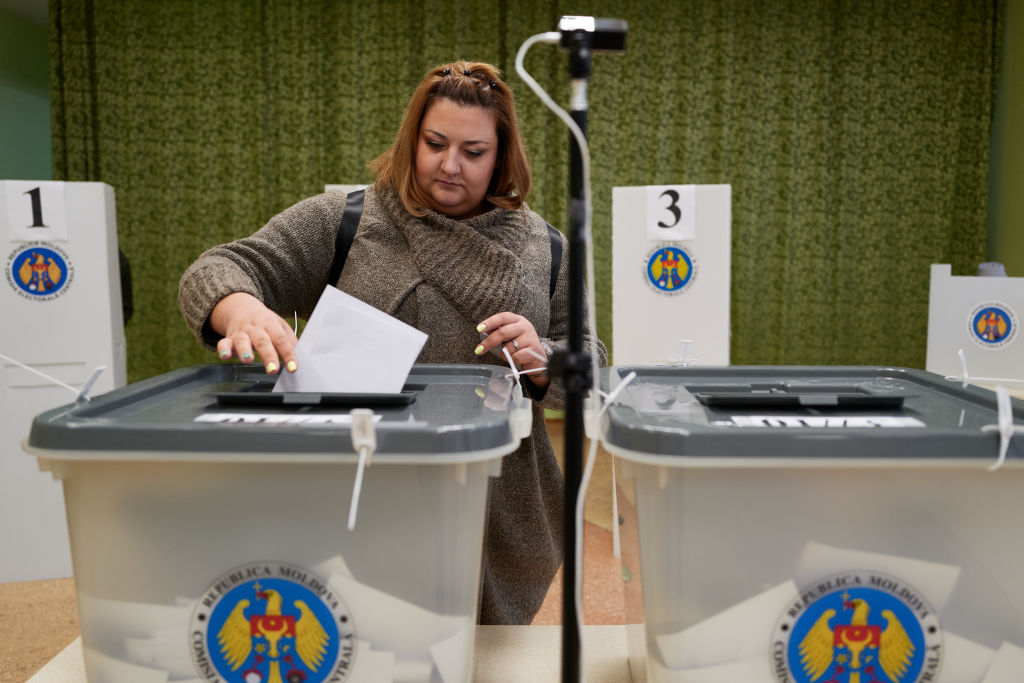Questions are mounting over the integrity of Germany’s snap federal election, with concerns largely focused on the hurdles faced by Germans living abroad.
Following the February 23 ballot, former president of the German Constitutional Court, Hans-Jürgen Papier, argued on February 24 that the “process surrounding the current elections of Germans abroad is not unproblematic from a constitutional point of view”.
He noted that, in principle, the electoral equality enshrined in the Basic Law, or Constitution, may have been violated in an interview with newspaper Berlin Zeitung.
His comments came as the Liberal Free Democratic Party (FDP) and the hard-left party Sahra Wagenknecht Alliance (BSW) have cast doubt on the election integrity – both failed to pass the 5 per cent threshold to enter the Bundestag.
Ahead of the vote, many Germans living abroad, including Miguel Berger, German Ambassador to the UK, had complained of not receiving paperwork for their postal votes on time.
“No Wahlunterlagen [voting document] arrived at my place in London!” Miguel Berger said on X on February 24.
“With Bundestagswahl [the federal election], many Germans living abroad cannot exercise their right to vote. Deadlines were calculated too tightly and the procedures were too bureaucratic. Reform is urgently needed,” the diplomat added.
Keine #Wahlunterlagen bei mir in London angekommen!
Bei der #Bundestagswahl können viele Deutsche im Ausland ihr Wahlrecht nicht ausüben. Fristen wurden zu knapp kalkuliert, die Verfahren sind zu bürokratisch. Eine Reform ist dringend notwendig. @Wahlleitung_de
— Miguel Berger (@GermanAmbUK) February 22, 2025
Deutsche Post estimated that standard international letters took approximately six to 10 business days to reach the US, eight to 12 business days for Argentina and 10 to 17 business days for Australia.
These estimates suggested that if election documents were mailed from Germany on February 10, they might arrive in Australia as late as February 28, well after the election result.
BSW leader Sarah Wagenknecht pointed that out to in a news conference on February 24, saying: “This raises the question of the legal validity of the election result.
“We will examine this and consult with lawyers, which is why this is only mentioned briefly at the end,” she added.
Wagenknecht said it was not yet clear how many of the 230,000 Germans registered to vote abroad were unable to cast their ballot.
Another BSW member, Fabio de Masi, has also raised his concerns.
The MEP argued on X on February 24 that eligible voters abroad affected by administrative issues could have influenced the election outcome had they been able to take part in the ballot.
“I fear that this election will still keep the Federal Constitutional Court busy. After counting all 299 constituencies, the BSW stands at 4.972 per cent. So it is 0.028 per cent short of the 5 per cent hurdle,” he said.
“If I can still do the math clearly, that is about 13,000 votes out of just under 50 million voters who cast their ballots. Thirteen thousand votes represent about 6 per cent of the 213,000 Germans living abroad registered in the electoral register who were significantly prevented from voting,” he added.
Members of the FDP had also criticised the electoral process ahead of the vote’s result.
Among them, Konstantin Kuhle noted early on February 23 that German voters abroad comprised around three to four million people in the election.
“This does not only affect the FDP but all parties. It is a scandal because many Germans abroad are prevented from exercising their democratic rights. This is unworthy of a democracy,” he told German media.
The question remained as to whether these issues affected the legitimacy of a new German government.
Overall, I see a high risk in this case that the cornerstone of democracy and trust in the integrity of the election could be violated.
One thing seemed certain, had the BSW and FDP secured seats in the Bundestag, forming a coalition would have been far trickier for winning party the Christian Democratic Union (CDU) and its leader Friedrich Merz.
Had FDP and BSW been represented, Merz would be looking at another complicated three-way alliance following the previous “traffic-light” administration.
Instead, Merz is now turning to the SPD in an effort to build a governing majority.
In November 2024, Ruth Brand, the Federal Returning Officer responsible for overseeing and ensuring the proper conduct of federal elections in Germany, warned now-outgoing Chancellor Olaf Scholz of the difficulties that would arise if new elections were held too early.
In a letter entitled Challenges and risks of early elections in January or February 2025, Brand highlighted five risks, including election integrity doubts.
“Overall, I see a high risk in this case that the cornerstone of democracy and trust in the integrity of the election could be violated,” she said.
In Germany, anyone looking to challenge the election outcome has two months to file a complaint with the Bundestag.
From there, the parliament’s election scrutiny committee would decide whether or not to order a recount, correct the results, or even call for a rerun of the ballot in disputed areas.
Germany’s election results have delivered a crushing blow to the progressive “traffic light” government. https://t.co/OZW8lIGOyn
— Brussels Signal (@brusselssignal) February 24, 2025





